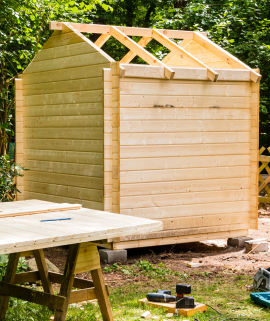What Home Improvements Really Add Value to Rural Properties?

As rural residential appraisers at Compeer Home, we’re often asked: What kinds of home improvements are actually worth the investment?
Every rural property is different. Location, acreage, home style and market demand all play a role in how upgrades are valued. But through our work appraising hundreds of rural homes, we’ve identified the types of projects that consistently add value—and the ones that don’t.
Here’s what to know before you start your next project.
Projects That Tend to Increase Value
When it comes to raising the appraised value of your home, functionality and condition matter most.
1. Add a Bathroom
One of the highest-impact projects in rural homes, particularly older farmhouses, is adding a bathroom. If your home has many bedrooms but only one or one-and-a-half bathrooms, that extra bath could significantly improve livability and market value.
2. Update Kitchens and Bathrooms
These spaces are smart investments as they’re the most used, which is why buyers tend to prioritize them. Improvements such as quality cabinetry and updated appliances could enhance the home’s appeal significantly.
3. Finish the Basement
Turning an unfinished basement into usable space like a bedroom, family room or home office could add meaningful square footage and overall value.
Keep Good Records
Whatever projects you invest in, save documentation. Permits, receipts and cost breakdowns help appraisers accurately assess what’s been improved. The more data we have, the better we can support your home’s value.
Projects That Often Don’t Pay Off
Some upgrades may seem impressive, but they don’t always add value during an appraisal—especially in rural settings.
1. Luxury Add-Ons
Hot tubs, saunas, indoor basketball courts or tanning beds may offer personal enjoyment, but they rarely increase market value. These features are highly subjective and can even deter some buyers due to maintenance concerns.
2. Overspending on High-End Materials
Using ultra-premium finishes or exotic materials that exceed the typical standards of your local market can backfire. This is what we call superadequacy—improvements that go beyond what buyers in the area are willing to pay for.
3. Oversized Heating Systems
We’ve seen cases where homeowners install multiple or oversized heating systems that aren’t appropriate for the size or layout of the home. These upgrades can add cost without guaranteed return and may even complicate resale.
Special Considerations for Rural Properties
Outbuildings and Sheds
Functional outbuildings can add value, especially when they’re aligned with the needs of rural buyers. A well-maintained garage, workshop or pole shed often appeals to buyers looking for storage, workspace or space for equipment.
But scale matters. One common pitfall we see is overbuilding—adding a large, highly finished shed or shop on a small parcel of land. In these cases, the cost of the structure may not be reflected in the market value.
Homesteading Features
In some areas, buyer interest in homesteading—small-scale farming, gardening or livestock—is on the rise. Improvements like fencing or small barns can add appeal, but again, it depends on the location and what local buyers are looking for.
Land Improvements
Projects like tree clearing, drainage work and driveway upgrades can influence value, but not always in the way you’d expect. In many cases, these are considered maintenance rather than value-adding improvements. For example:
- Drainage improvements may protect the condition of your home but don’t always result in a higher appraisal.
- Tree clearing can even reduce land value if it changes the land classification.
- Driveway upgrades can improve accessibility, but their value impact depends on location and property size.

Don’t Overlook the Power of Maintenance
One of the most effective ways to protect—and even improve—your home’s value is through regular, thoughtful maintenance.
Repainting walls and replacing worn flooring may not be as flashy as a hot tub but consistent upkeep sets the foundation for everything else. Appraisers look closely at the condition and quality of a home and buyers often prefer properties that feel move-in ready.
Final Takeaway
Not every home improvement pays off the same way, especially in rural areas where location, land and property features play a bigger role. Focus on projects that improve function, match your market and keep your home in good condition.
Considering an upgrade or planning to refinance?
Connect with a Compeer Home expert for rural insights you can trust.
|